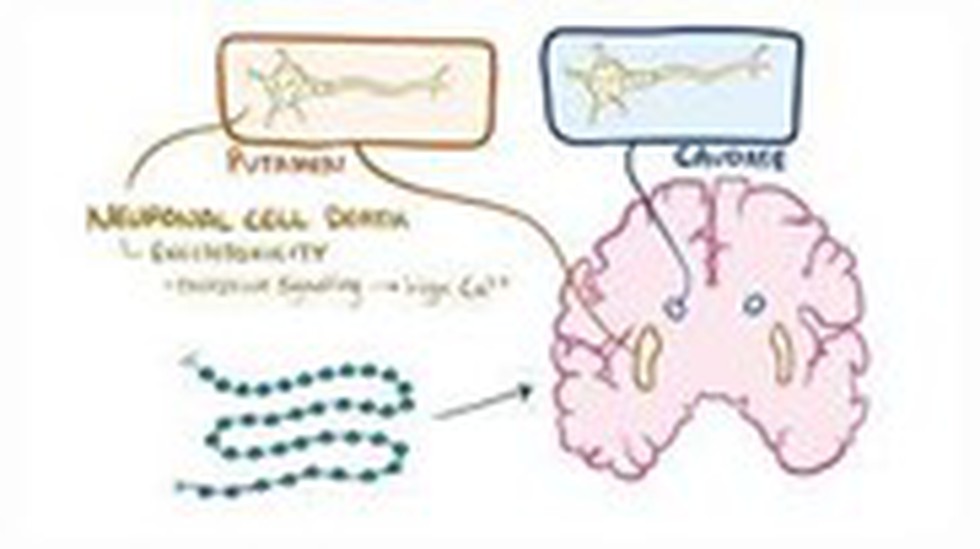About the Huntington’s disease:
- It is a rare, inherited disease that causes the progressive breakdown (degeneration) of nerve cells in the brain.
- It has a wide impact on a person's functional abilities and usually results in movement, thinking (cognitive) and psychiatric disorders.
- There are two types of Huntington’s disease:
- Adult onset: This is the most common form. Symptoms usually begin after age 30.
- Early onset (juvenile Huntington’s disease): Early onset affects children and teenagers. It’s very rare. When Huntington's develops early, symptoms are somewhat different and the disease may progress faster.
- Cause:
- A genetic change (mutation) of the HTT gene causes Huntington’s disease. The HTT gene makes a protein called huntingtin. This protein helps your nerve cells (neurons) function.
- The normal HTT gene contains a stretch of DNA that specifies the number of times the amino acid glutamine is repeated in the HTT This number varies from 11 to 31.
- In the mutant versions of the HTT gene, this stretch is expanded to encode 35 or more repeats.
- As the number of repetitions increase, the severity of Huntington’s disease increases and its debilitation begins at an earlier age.
- Symptoms
- Huntington's disease usually causes movement, cognitive and psychiatric disorders with a wide spectrum of signs and symptoms.
- The patient suffers mood swings, has difficulty in reasoning, shows abnormal and uncontrollable jerky movements, and experiences difficulty in speaking, swallowing, and walking.
- Treatment: Medications are available to help manage the symptoms of Huntington's disease. But treatments can't prevent the physical, mental and behavioural decline associated with the condition.
